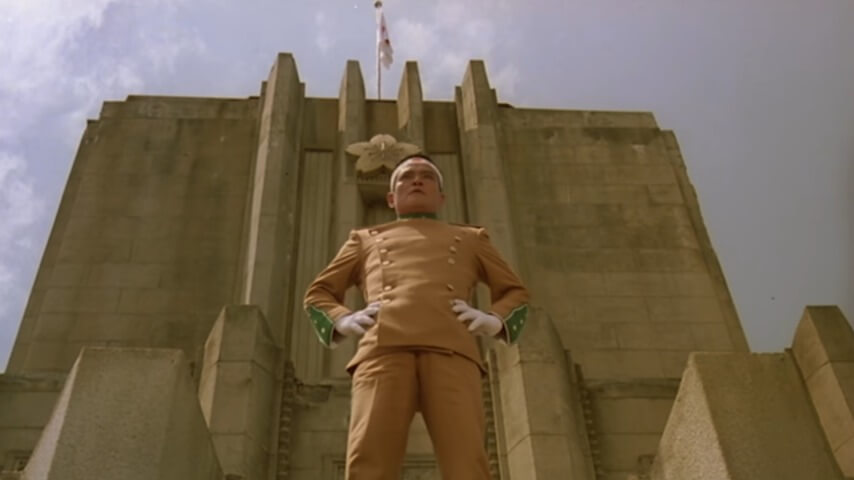Mishima: A Life In Four Chapters explores the life and work of Yukio Mishima, a Japanese author who was nominated for the Nobel Prize in Literature five times before committing seppuku in 1970 after a failed coup d’état. The film, which was produced by both George Lucas and Francis Ford Coppola, tells the story of Mishima’s life interwoven with stylized, dreamlike sequences from his books. While it has received widespread critical acclaim in the years following its release—Roger Ebert called it “the most unconventional biopic I’ve ever seen, and one of the best,” per THR—it was a flop in its day, and has remained a sore subject in Japan.
Mishima was still an incredibly controversial figure in the country in the ’80s, THR explains. While he was revered in literary circles for his writing, he was also claimed by the far right as a martyr for imperial restoration. The film’s depiction of his bisexuality and radical politics inspired a boycott from his widow and eventually caused prominent studio Toho Towa to pull its support and cancel its domestic release. The film was also pulled from the lineup of that year’s Tokyo International Film Festival. While the film has occasionally been screened in academic circles, THR reports that the force of that initial backlash has kept distributors and festival organizers away. Despite being filmed in Japan and featuring an entirely Japanese cast, the film has been largely unavailable to the Japanese public.
Sources related to this year’s edition of the Tokyo festival tell THR that the decision to include the film (which will screen on October 30) was made in honor of the 100-year anniversary of Mishima’s birth in 1925. Schrader has reportedly expressed interest in giving a talk at the festival, but his attendance has not been confirmed and promotion of the film remains a “difficult” prospect for organizers. Still, even if the release is quieter than some may have hoped, this is a major milestone.

 Keep scrolling for more great stories.
Keep scrolling for more great stories.
